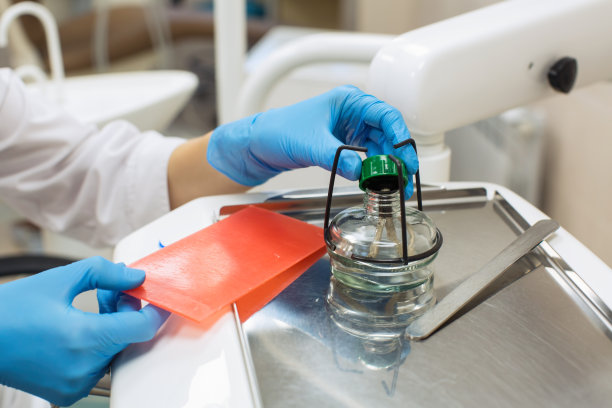Summary: Dental implants have gained popularity as an effective solution for tooth replacement, offering durability and a natural appearance. However, successful implantation requires careful consideration of several precautions to ensure optimal results and a smooth recovery. This article highlights the essential precautions, including selecting a qualified dentist, preparing for the procedure, understanding aftercare requirements, and recognizing potential risks. Each precaution plays a critical role in enhancing both the outcome of the dental procedure and the patients overall recovery experience.
1. Choosing a Qualified Dental Professional

The first crucial step in undergoing dental implantation is selecting a qualified dentist or oral surgeon. Proper qualifications and experience ensure that the procedure will be performed with the utmost skill and care. Its essential to research the dentists credentials, including their education, specialized training in implantology, and patient reviews.
Moreover, scheduling a consultation allows patients to gauge the dentists communication style and professionalism. During this meeting, potential patients should ask questions about their experience with similar cases and inquire about success rates. A knowledgeable professional will provide transparent information that helps build trust and confidence.
Lastly, it’s beneficial to check if the dental practice is up-to-date with the latest technologies and techniques. Advanced tools, like digital imaging and 3D implants, contribute to a higher success rate, better outcomes, and reduced recovery times.
2. Preparing for the Dental Implant Procedure
Proper preparation before undergoing dental implant surgery is vital for achieving optimal results. One of the essential aspects of preparation is a comprehensive dental evaluation. The dentist should assess the individuals oral health, including checking for gum diseases, as these can impact the procedures success.
Patients may also require specific imaging studies, such as X-rays or CT scans, to provide a detailed view of bone density and structure. A thorough assessment by the dentist helps identify any potential issues that could complicate the implantation process, enabling timely intervention.
Additionally, patients should inform their dentist about any medications they are taking or underlying health conditions. Some medications may affect healing or blood clotting, thus necessitating adjustments to the treatment plan. This collaborative approach ensures both safety and effectiveness.
3. Understanding Aftercare for Dental Implants
Post-operative care is just as crucial as the initial procedure when it comes to successful dental implant recovery. Following the dentists guidelines closely can significantly enhance healing and implant integration. Patients should expect to manage swelling, discomfort, and possibly bleeding right after the surgery, necessitating adherence to the provided instructions.
Maintaining good oral hygiene is essential for preventing infection. Patients should be educated on how to gently clean the implant site while avoiding any disruption to the healing process. Using a saltwater rinse or a prescribed antimicrobial mouthwash can help support recovery.
Monitoring any unusual symptoms, such as excessive pain or prolonged bleeding, is also vital. If complications arise, patients should reach out to their dentist immediately. Proactive communication about recovery concerns aids in addressing potential issues before they become serious.
4. Recognizing Potential Risks and Complications
While dental implants have a high success rate, they are not without risks. Understanding these risks can help patients prepare mentally and physically for the procedure. Common complications may include infection, nerve damage, or implant failure, and being aware of these can lessen anxiety.
Patients with certain pre-existing conditions, such as diabetes or osteoporosis, may face increased risks. It is crucial for patients to discuss their full medical history with their dentist to identify any factors that could affect the success of the implant.
Also, the risks associated with sedation during the procedure should not be overlooked. Patients should clarify any concerns regarding anesthesia with their dentist beforehand, ensuring they are fully informed and comfortable with treatment options.
Summary: In summary, successful dental implantation requires thorough preparation and awareness of various factors. Choosing a qualified professional, diligent preparation for the procedure, understanding aftercare, and recognizing potential risks all contribute significantly to the overall success of the treatment. By addressing these essential precautions, patients can enhance their recovery experience and achieve optimal results.
This article is compiled by Vickong Dental and the content is for reference only.
Vickong Dental
Vickong Dental is a large medical group established in Hong Kong in 2008 by professors from well-known medical universities in Guangdong and Hong Kong, as well as medical doctors from key national '985' universities (including Master's supervisors and senior professors). The chain of branches brings together expert dentists with PhDs and Master's degrees from Hong Kong and Mainland China, committed to providing high-quality dental treatment.
"Vickong Dental Practices the University Motto of 'Healing and Serving Society,' with a Stable Operation for Sixteen Years. It Has Been honored with Hong Kong Enterprise Leaders's Choice,' and is a Global Trusted Implant Center for the Nobel Implant System. Recommended by Hong Kong Metro Broadcast and Guangdong Television, it Serves Customers from Over Thirty Countries and Regions, Gaining the Trust and Favor of Citizens from the Guangdong-Hong Kong-Macau Greater Bay Area and Surrounding Cities.

Thousands of customers' unanimous praise
The most recognized and highly recommended dental service by customers in the Guangdong-Hong Kong-Macau Greater Bay Area
We Ensure You Receive Detailed Care and Attention Here
Hong Kong standards, Shenzhen prices, Your Trusted English-speaking dentists

Vickong Dental Medical-Grade Instrument Disinfection Process
Vickong Dental Medical-Grade Instrument Disinfection Process

Vickong Dental Chain: A Warm and Comfortable Environment for Treatment






Appointment Hours

Q&A
Why choose Vickong Dental?
Vickong Dental practices the university motto 「Medicine to Benefit Society」, with each branch bringing together highly qualified dentists with doctoral and master’s degrees from Hong Kong and the Mainland, and has maintained seventeen years of steady operation。Recipient of 「2024 Hong Kong Enterprise Leaders Brand」, 「2025 Hong Kong Enterprise Leaders Brand」, a Nobel Biocare Global Trusted Implant Center, and a brand recommended by Metro Radio Hong Kong and Guangdong TV。
To date, we have served customers from more than thirty countries and regions,earning exceptionally high word-of-mouth recognition and trusted recommendations from residents across the Guangdong-Hong Kong-Macao Greater Bay Area and surrounding cities
We have eight major branches in Zhuhai、Shenzhen,and a consultation and service assurance center in Hong Kong,so you can book a free consultation at any time for any questions,which is very reassuring.
If I do not accept the quotation after the CT scan, will I be charged??
No! As long as the actual treatment has not started, you will not be charged any fees.
Will there be any additional charges during the treatment process?
No, there won’t be any additional charges. Before treatment begins, we will clearly explain the treatment plan and its corresponding fees. Only after the patient agrees and signs the consent form will we proceed with the dental service.
Can I pay in Hong Kong dollars?
Yes. Vickong Dental accepts payment in Hong Kong dollars. The amount will be converted based on the exchange rate of the day, and the applicable rate will be clearly communicated to you in advance.
Can I reschedule my appointment at any time?
Yes. Please contact us via **WeChat** or **WhatsApp** as early as possible, providing your original appointment time and details, along with your preferred new date and time slot for rescheduling.













